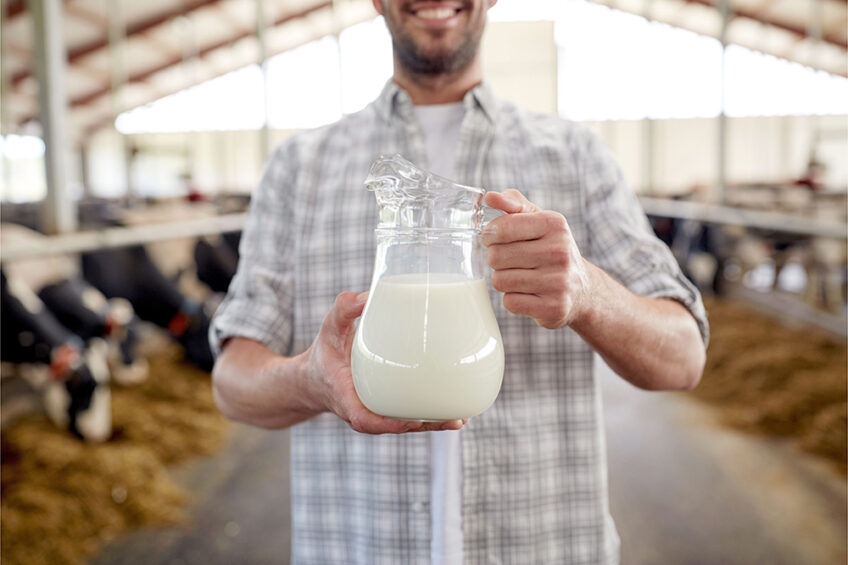Market Watch: Aussie dairy farmers’ profits at all time high

From the upward trend in China’s demand for dairy to trade disputes, new trade deals and weather events, what is the impact on Australasia’s dairy markets. This month’s Market Watch investigates.
MARKET WATCH – click here for more trends in dairy markets
Chinese dairy demand hinting a pickup
Chinese dairy demand is hinting at a pickup. According to senior agri economist Nathan Penny of Westpac NZ, economic data have been more positive. This may translate into higher demand over time.
“However, on balance, we remain cautious,” Penny says. “There have been both positive and negative developments since we lifted our milk price forecast on 18 October, and these have largely cancelled each other out. With that in mind, we reaffirm our milk price forecast for this season at NZ $7.25 (US $4.41) per kg milk solids.”
Global Dairy Trade Price Index
Overall dairy auction prices were unchanged on 22 November. The Global Dairy Trade Price Index remained flat. In contrast, key whole milk powder (WMP) prices lifted 1.9%. By product, the result was mixed. 3 price rises were matched by 3 price falls.
All up prices have softened a touch over November, Penny points out, after strong results over September and October. “For example, WMP prices fell 0.9% over the month from the end of October.”
The Westpac economist says that dairy markets previously had been factoring in drought risk on the back of the El Nino weather pattern. “In our view, this has been overdone and may explain the pullback in prices over November.”
New Zealand spring production has started on a firm note, with September production up 1.3% compared to September 2022. “We expect a similar lift over October,” Penny says.
Organic dairy farmers
Fonterra’s organic farmers received a record milk price of NZ $10.80 (US $6.56) per kg milk solids last season, the company has confirmed. The dairy giant processed 85 million litres of certified organic milk in 2022-23. For the current season, Fonterra is forecasting 105 million litres of organic milk.
According to the recent report ‘The Australian dairy industry in focus’, the 2022-2023 season saw a continuation of historically high farmgate milk prices and high milk costs, with strong competition for milk amongst processors leading to Australian dairy farmers receiving an average of AUS $9.80 per kg milk solids (US$52 per 100kg of milk).
Dairy Global’s market prices tool
Profitability at all-time high
The vast majority of farmers reported an operating profit, the Dairy Australia report says, with profitability at an all-time high in some regions. Nevertheless, milk production contracted by 5% compared to the previous season. This is a significant contraction in a single year, especially with historically high farmgate milk prices.
Factors that contributed to this decline include a higher cost of milk production, labour availability, land use change to beef enterprises, and dairy farmers deciding to exit the industry. “In addition, there were significant flood and wet weather events that disrupted dairy farming and reduced feed quality,” Managing Director David Nation of Dairy Australia explains.
Widespread downgrading of both homegrown and tradeable fodder led to hay prices rising well above longer-term averages, similar to grain, fertiliser and fuel costs. As a result, Australia’s national milk pool ended the season at 8,129 million litres.
Canada and US trade-dispute
A trade-dispute panel has rejected a complaint that Canada has overly restricted US dairy imports. In a recent decision, the panel ruled that Canada has not acted unreasonably. The Canadian government has been restricting the amount of imported dairy products at duty-free or low tariffs. Higher amounts have been subject to tariffs, in some cases nearly 300%, shielding Canadian farmers from foreign competition.
New EU-New Zealand FTA
The parliament of the European Union has approved a new EU-New Zealand free trade agreement. The deal defends European producers of sensitive agricultural goods, such as beef and several dairy products.
Executive director Kimberly Crewther of the Dairy Companies Association of NZ (DCANZ) says in NZ media that the EU is seeking to keep its own dairy market largely closed, while at the same time advancing an agenda to monopolise certain cheese names that have been used internationally for decades.
“It is a matter of public record that DCANZ requested the New Zealand Government to not close out an agreement with the low level of dairy access we were granted,” Crewther says. “Especially when the EU had previously eliminated dairy tariffs in trade details with Canada and the UK.”






